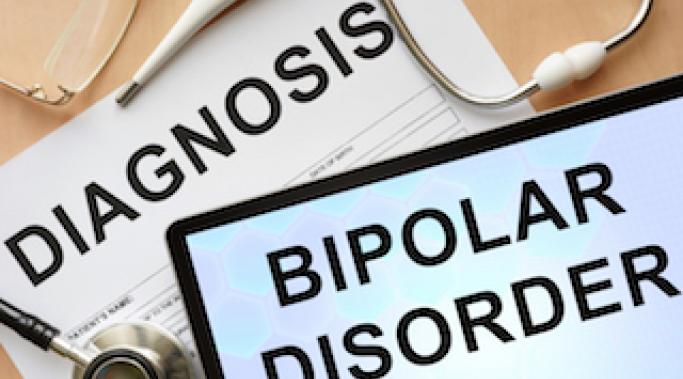Blogs
Should women with serious mental illnesses have children? There are many respected, professional women living with bipolar disorder who have decided against having children (I Can't Get Pregnant--I Have Bipolar Disorder). I chose to have children, to take the risks associated with a bipolar pregnancy, postpartum dangers, and passing down my bipolar disorder. Here’s why.
Therapy works if you put in the effort. Recently I learned that my brother, an active alcoholic, agreed to go to counseling. I hope and pray that it helps. But he has issues with therapists and the last time he went to counseling he held it all in, so nothing changed. That's not helpful at all and is a waste of time. It's like the joke about how many therapists it takes to change a light bulb: "Only one, but the bulb has to really want to change." Therapy works if you put in the effort--but if you don't, the best therapist in the world won't be able to help.
Mental health stigma at school from peers can lead to bullying. Bullying can be an extremely difficult and traumatizing problem for children, especially those with mental health issues. Short term, when a child is being bullied and has a mental health problem, additional problems may add to their original diagnosis. These could be anything from social anxiety problems to depression. Further, during a child's critical formative years, mental health stigma at school (as bullying) affects the child for years to come. Here are some things you can do when your child faces mental health stigma at school.
Bipolar disorder, formerly known as manic depression, is characterized by highs and lows in mood. A person living with bipolar disorder experiences shifts in their thought processes, energy levels, behaviors, and emotions. Although the onset of bipolar disorder is typically in early adulthood, an individual can begin to experience symptoms as a teenager. Receiving a diagnosis at such a young age can seem like the end of the world. This doesn’t have to be the case.
Complex PTSD (posttraumatic stress disorder) results from experiencing prolonged trauma, over which the person has little or no control, and from which escape seems hopeless. Many times, complex PTSD affects those who suffered ongoing physical, emotional, or sexual abuse during childhood and victims of long-term domestic violence.
Most people with schizoaffective disorder take medication for their condition. Whether I like it or not, I don’t think I could function as a rational human being without medication (Schizoaffective Disorder Treatment). But what is it like to need to take medication for schizoaffective disorder, which includes symptoms of psychosis and the symptoms of a mood disorder?
Anxiety awareness is important all the time, but during Mental Illness Awareness Week, a special spotlight shines on mental illness, including anxiety disorders. Such a spotlight brings light and warmth to anxiety, which is so often swept away into dark corners. Read on for information that can help increase awareness of anxiety and anxiety disorders and lessen some of the frustrations that come with a lack of understanding.
The dating rules for revealing your mental illness are important to know when getting back into the dating scene. In general, dating can be nerve-wracking, but dating with a mental illness can cause even more anxiety (Should You Tell People You Have a Mental Illness?). The stigma of mental illness prompts insecurities and feelings of inadequacy when it comes to dating. Those of us with a mental illness may approach dates with the notion that we are damaged goods. The truth is, most people are insecure about dating. It is important to know the dating rules for revealing a mental illness to prevent added stress. A mental health condition does not make you flawed, or unattractive. It adds an authentic element to your life that challenges you but does not define you.
Responding wisely isn't easy until you get control of your emotions. Eliminate problems before they arise rather than reacting to them once they crop up. When you learn to get control of your emotions, you can respond wisely in any situation.
Police de-escalation is not "hug a thug." Unfortunately, police are often the first responders to a mental health crisis. Police, however, are trained to deal with criminals, not sick people. We see the result of the tragedy in Sacramento in which police attempted to run over a mentally ill black man before shooting him 14 times.1 They knew he was mentally ill yet escalated the situation with lethal force. According to the L.A. Times, police unions and some of the rank-and-file refer to de-escalation as "hug a thug."2 This is the wrong attitude for an officer to have, and makes calling the police for help dangerous for a person with mental illness.










I believe she will only be able to rid herself of her demons, and hopefully her BPD as well, when she's ready to confront the abuse of her father. If she can put the blame where it belongs, she may stop projecting that victim/perpetrator cycle on the present men in her life. These demons are a metaphor for the purgatory she has created for herself. That reality has consequences in the real world, but it need not be real in the tangible sense. Exorcising her demons will require the expenditure of real physical energy and probably the destruction of aspects of her personality. If this ever happens, and it's possible but not probable, then these demons will evaporate. They are only as real as one's personality is real. In short, reality is not the question, it's what you make of the things you feel to be real.